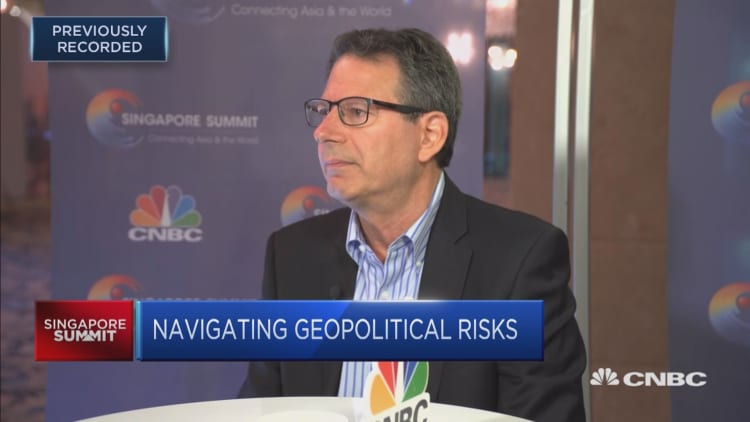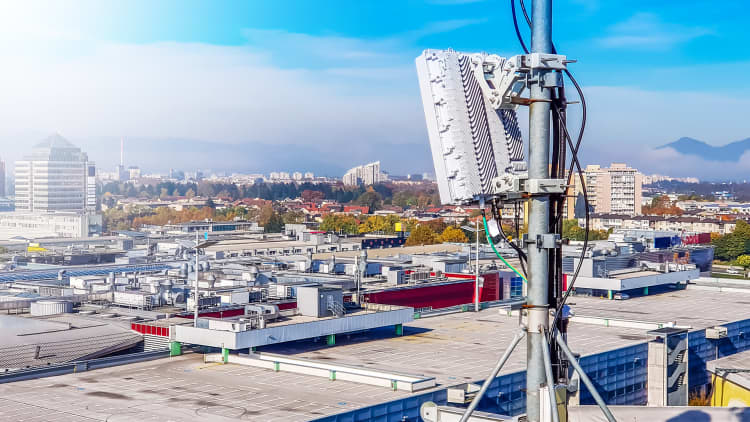The United States needs to make room for China as a rising military power in the Asia-Pacific region, even if a declining U.S. presence there reduces stability, according to an expert.
Asia does not depend solely on the U.S. for security, but with the Chinese navy, army and air force growing in strength, a "far more multi-polar, unstable military environment" has resulted, said Robert Kaplan, senior advisor at consulting firm the Eurasia Group.
Speaking at the Singapore Summit on Saturday, he said: "America is the only country that's active in Asia that does not have territorial ambition inside Asia. And it's therefore kind of a balancing, even stabilizing power."
The U.S. has to make room for a rising China in Asia militarily, economically. The question is how much room.Robert Kaplansenior advisor, Eurasia Group
"So I think if America's role on these matters is diminished, with only the U.S. Navy there as a stabilizing force without the White House backing it up, stability in Asia has to be affected," added Kaplan, who's also a senior fellow at the Center for a New American Security.
But, he said, the rise of China's military "cannot be denied."
"The U.S. has to make room for a rising China in Asia militarily, economically. The question is how much room. And that takes a very nuanced policy to say the least, to convert Asia from a uni-polar to a multi-polar security world," concluded Kaplan.

The United States withdrew from the massive Trans-Pacific Partnership (TPP) trade deal in 2017, but last month it announced $113 million in infrastructure spending for the Asia Pacific region — part of U.S. President Donald Trump's so-called Indo-Pacific strategy. It included new ventures focused on technology, energy and infrastructure.
China, on the other hand, has been exerting its presence in the South China Sea, and has extended its influence by means of its massive Belt and Road Initiative.
A desire to counter China's economic and political influence, which Beijing is expanding through its massive Belt and Road infrastructure program, is believed to be a major factor driving this Indo-Pacific policy. Many view the U.S. fund as an alternative to the Belt and Road Initiative.
But that $113 million American fund is minimal in comparison with China's trillion-dollar Belt and Road. In Pakistan alone, China has $62 billion worth of infrastructure projects.
Cyber-conflict and cyber-competition
The networked world and technology will become increasingly important elements of global politics, Kaplan said on a panel at the Singapore conference.
He said cyberattacks will probably continue to happen across borders — potentially on a massive scale that hasn't been seen before.
Additionally, there will be other forms of competition in cyber-space between the United States and other countries, Kaplan said. He cited competition between the United States and China on the next-generation mobile network known as 5G.

According to a Deloitte study this month, China has in recent years outspent the U.S. by $24 billion in developing 5G, and it could be a major factor behind the U.S.-China trade war.
And as for any cyber attacks, Kaplan said, they could draw a "conventional military response."
"We could have massive cyber attacks on a scale which we have not seen so far. That could elicit a conventional military response in some way, like taking down a country's electric grid, or a stock market for a few days," he warned.
— CNBC's Nyshka Chandran and Arjun Kharpal contributed to this report.


